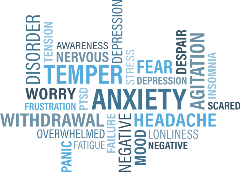Behavioral Health

Behavioral health is a major public health issue in the District of Columbia. Sadly, many of the legislative and regulatory initiatives around behavioral health are tied to other public health concerns, such as opioid addiction, maternal mortality, and health equity.
In partnership with the Washington Psychiatric Society, AMA, and American Psychiatric Association (APA), MSDC works to ensure that patients receive appropriate support for behavioral health issues, that the practice of psychiatry is supported in the District, and that psychiatrists are available to patients in the District.
MSDC was a proud supporter of the Behavioral Health Parity Act of 2017, which enshrined into law that all health plans offered by an insurance carrier meet federal requirements of the Wellstone/Domenici Mental Health Parity and Addiction Equity Act of 2008.
MSDC Statements and Testimony of Behavioral Health Issues
25th Council period information coming soon
Learn About Our New Strategic Vision
At our June Board of Directors meeting, the MSDC Board approved a new strategic vision for the Society. I am writing to share why this matters to you and your practice, and show some highlights of this plan.
First, let's talk about the process. This plan came through serious thought and consideration of the direction of the Society. To help focus the conversation, MSDC hired Global Navigators to facilitate conversations and provide an outside perspective. Global Navigators interviewed the Board and Executive Vice President, and held a half-day retreat one weekend to have some honest discussion. Two Board meetings included long conversations about the strategic plan and various drafts.
Second, let's discuss what is in our strategic plan. The plan includes (a) a mission statement, (b) a vision statement, (c) our core values, (d) a new diversity, equity, inclusion, and belonging statement, and (e) our objectives and goals to implement them.
Mission Statement
To ensure physician and patient well-being in the District of Columbia through the promotion of high-quality accessible care in a changing healthcare environment.
Our mission is clear: your Society will work every day for you and your patients. We want the District to be a model of high-quality and accessible care even while recognizing that we face a rapidly changing world.
Vision Statement
To make the District of Columbia the nation’s model for patient care and physician practice.
The vision statement is the brief summary of our strategic vision, and we include it on every letter and written testimony we create. As you can see, we want to make DC a model across the country for how we care for patients and protect physicians practice, regardless of the type.
Core Values
Quality
Equity
Compassion
Our values go beyond scientific knowledge. The Society values and promotes sound medicine (like we have since 1817), but also medicine that treats people with equity and compassion. As we will see in the DEIB statement, we recognize that past medical
and Society practices may have downplayed these elements, but we now recognize that quality, equity, and compassion are essential to the practice of medicine and the mission of the Society.
Our Commitment to Diversity, Equity, Inclusion, and Belonging
MSDC respects, welcomes, and celebrates all people and their diverse identities. We recognize the negative impact of health inequity across all facets of society. We are committed to working toward elimination of bias and healthcare disparities wherever they exist with the goal of ensuring that everyone belongs.
Our communities will flourish when we mutually celebrate and champion our unique strengths and diverse backgrounds.
This is MSDC's first equity statement, and we wanted to incorporate "belonging" to our DEI statement. We recognize that inequality has negatively impacted society and patient care, and your Society will work to eliminate bias and disparities. Not recognize or highlight, but eliminate. Our statement acknowledges that differences and diversity are a strength and we celebrate them in your Society's work.
Objectives and Goals
Objective 1: Become the Best Resource for Physicians Practicing in DC
- Build greater awareness of MSDC among individual physicians and physician groups
- Introduce MSDC to physicians new to the District of Columbia
- Engage medical students, residents, fellows, and early-career physicians with mentorship and support
- Engage licensed allied health professionals
Objective 2: Strengthen advocacy and outreach
- Ensure MSDC provides a home where physicians in DC belong
- Advance Diversity, Equity, Inclusion, and Belonging within medicine in DC
- Build on existing relationships that further expand MSDC’s voice for physicians and patients
- Extend outreach efforts by building new partnerships with key stakeholders
Objective 3: Ensure MSDC’s long-term Growth
- Build member and partner value to ensure long-term commitment to MSDC
- Increase the number of engaged members
- Introduce a sound business plan that reflects MSDC’s long-term strategy
- Optimize existing and explore new revenue streams
These are the three pillars on which our work and implementation of our plan will rest. The Society will execute our vision in three areas. First, your Society will provide resources to support physicians practicing in DC, no matter what type of practice, including engaging with all parts of your practice. Second, MSDC will grow what has consistently been our highest-rated member benefit, advocacy on behalf of the profession. Finally, we will continue to position the Society for sustained growth in the future despite uncertainty in the world around us.
That's our plan. How can you help or get involved? Sign-up to join one of our member groups or reach out to me via hay@msdc.org. We plan on this being a living document, guiding our work for the years to come.
Sample of Legislation MSDC is Tracking in Behavioral Health
(see the whole list of bills here)
What does it do? The bill requires licensed health providers to complete 2 hours of CME on suicide prevention, assessment, and screening.
MSDC position: MSDC opposes the bill as written as the language does not encourage physician wellbeing or sufficient awareness of suicide prevention.
Current status: The bill had a hearing with the Committee on Health on June 10.
